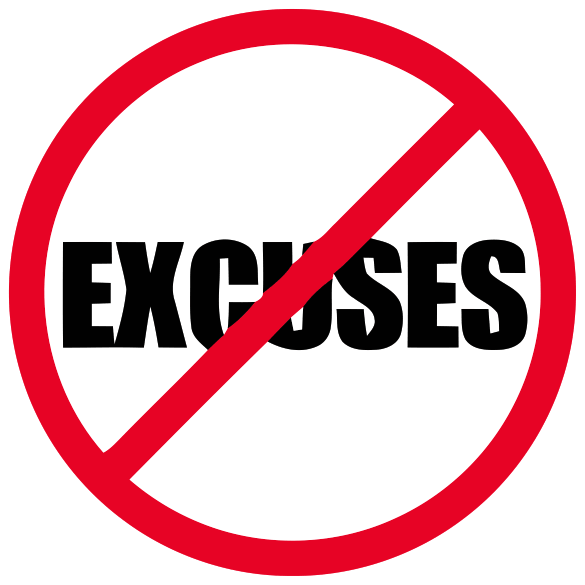Table of Contents
- 1. The Algorithm Changed
- 2. It Was a Manual SERP Edit
- 3. They’re an Authority / Brand Site So They Can Do Anything They Want
- 4. I’ve Seen This With Other Sites
- 5. Matt Cutts Said So

SEOs, especially those providing consulting services, are often confronted with situations that they need to explain. They are, after all, supposed to be experts in the way search engines work and knowing why something has happened is why they get the big bucks, right? For those that have put their trust in an SEO, you’ve probably heard some crazy excuses and sensed a little CYA or BS. For future encounters, I’ve expanded on 5 of the more common excuses.
1. The Algorithm Changed
This is a good one. Since Google and the other search engines keep the details of their algorithms a secret, anyone can claim that there’s been a change knowing that there isn’t any way to disprove the statement.
Sometimes the explanation is legit especially when the word “algorithm” is used to denote any piece of data that the search engines use to determine ranking rather than the “core” algorithm that probably doesn’t change all that much.
If the algorithm has changed, then there should be noticeable changes on multiple sites since a change is highly unlikely to affect just one site. For example, Aaron Wall identified an algorithm change when he reported on Google’s preference for big brands.
2. It Was a Manual SERP Edit
When a decline in a site’s performance in organic search results is sudden, a manual SERP edit is often blamed. While it’s true that Google’s web spam team will manually evaluate sites and apply a penalty / filter if they discover something that violates their terms of service, if you aren’t doing anything particularly aggressive then a manual edit isn’t likely. If, on the other hand, you have crossed the line that Google has drawn in the sand, then a manual edit is quite possible.
There’s no foolproof way to distinguish between a manual edit and one that was algorithmic. The only advice I can provide is to assess what you’ve been doing, undo it, and if performance improves you were likely hit with an algorithmic penalty. If things don’t improve, that’s when you’ll want to submit a reconsideration request since a manual edit requires a manual review to correct.
3. They’re an Authority / Brand Site So They Can Do Anything They Want
The authority / brand explanation is the SEO’s lament when a competitor continues to perform exceptionally well. While never admitted to by the folks at Google, there’s a lot of anecdotal evidence that a popular brand can get away with more TOS-violating activities than a lone site owner.
There isn’t much you can do about this double-standard except to build a brand of your own. Since most of us don’t have that kind of budget, the alternative is to always proceed in a defensive manner — if you put all of your eggs in one basket you’re going to be in big trouble when Google knocks that basket out of your hand.
Even when a big brand is caught red-handed, there’s still a double-standard as reconsideration requests are actually attended to quickly.
4. I’ve Seen This With Other Sites
This explanation is sort of like social proof. If another site is doing something and is successful, then that alone is often reason enough for your SEO to suggest the tactic to you. Similarly, if another site is dinged for an activity then your SEO may be warn you against doing it. The problem with this sort of thinking is that you can’t know all of the details about what someone else is doing. What is being detecting as correlation between an action and an effect may not be causal — there could very well be 10 other activities that are responsible for the observed effect.
5. Matt Cutts Said So
The best is when Matt Cutts apparently said something in one of his videos. Yeah, Matt Cutts probably, maybe said something sort of related, but it’s next to impossible to track down the exact statement because the videos are too numerous and transcripts for all of them don’t exist.
The other complication with references to Matt Cutts are that Matt is a graduate of the school of Alan Greenspan explanations. At first blush everything sounds cool, but when you listen closely every answer prompts two more questions. No offense Matt, the information you provide is great and I certainly don’t expect you to give away the farm whenever an SEO asks.
By no means am I saying your SEO is lying to you when you hear one of the above excuses. Just be aware that sometimes such answers are based on a gut feeling and that asking for additional details might help both you and your SEO zero in on the real explanation.

Leave a comment